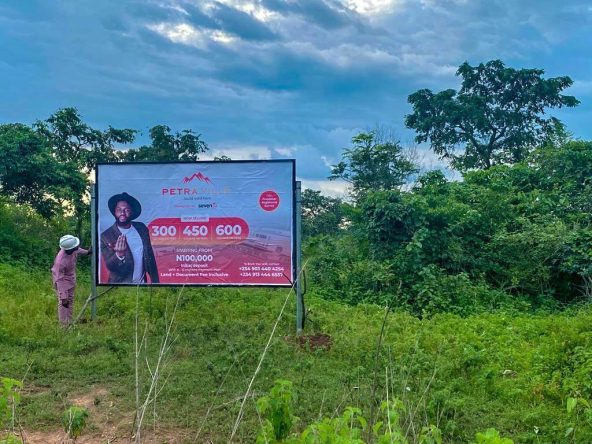To acquire land documents is a crucial step in the real estate process, ensuring the legality and authenticity of property ownership. In Lagos, Nigeria’s bustling economic hub, obtaining the necessary land documents is vital for both buyers and sellers.
Bestate Investment is committed to providing valuable information to help individuals navigate the process with ease. This article serves as a comprehensive guide to acquiring essential land documents, providing you with the knowledge needed to make informed decisions.
Importance of Proper Documentation
Proper documentation is crucial when acquiring land as it establishes legal ownership, protects against disputes, and provides a clear record of transactions. Here are some reasons why proper documentation is essential:
- Proof of Ownership
Land documents such as the Certificate of Occupancy and Deed of Assignment serve as legal evidence of ownership. They establish the rights and interests of the landowner and provide protection against any competing claims or disputes.
- Boundaries and Encroachments
Land documents, particularly the Registered Survey, accurately define the boundaries of the land. This helps prevent encroachments from neighboring properties and ensures that the landowner’s rights are upheld.
- Land Use and Development
Land documents play a crucial role in determining the permissible use and development potential of the land. The Certificate of Occupancy and Allocation Letter provide information about the approved land use and any development restrictions.
- Access to Financing
Financial institutions often require valid land documents as collateral when providing loans for real estate projects or property purchases. Proper documentation increases the chances of securing financing and demonstrates the legal viability of the land as an asset.
- Dispute Resolution
In the event of a dispute or legal proceeding, having proper documentation strengthens your case. Land documents serve as evidence and can help resolve conflicts fairly and efficiently, as they provide a clear record of ownership, transactions, and rights associated with the land.
- Compliance with Legal Requirements
Adhering to the requirements set forth by the Lagos Land Act and obtaining the necessary land documents ensures compliance with the legal framework governing land transactions in Lagos. This compliance not only protects the parties involved in the transaction but also contributes to the overall stability and transparency of the real estate market in the state.

How to Acquire Land Documents in Lagos
Lagos, as a vibrant and rapidly growing city, has a well-defined system for land documentation to ensure legal ownership and facilitate property transactions. The Lagos Land Act serves as the legal framework governing land transactions in the state. Under this act, several key land documents are recognized and required to establish ownership and rights.
- Certificate of Occupancy (C of O)
The Certificate of Occupancy is the ultimate proof of land ownership in Lagos. It is issued by the Lagos State Government and provides legal evidence that the land is suitable for the proposed use. The C of O serves as a crucial document when engaging in real estate transactions, obtaining financing, or pursuing development activities. It signifies the transfer of ownership from the government to an individual or organization.
Acquiring a Certificate of Occupancy (C of O) for a property in Lagos State involves a structured process. Here is a step-by-step guide to obtaining the C of O:
- Land Information Application: File an application to obtain land information from the Surveyor General’s office at Alausa, Ikeja, Lagos State.
- Application Form: Purchase the private Certificate of Occupancy application form and submit it along with the necessary documents.
- Objection Period: A publication is made to allow individuals to raise objections to the application. The objection period is 21 days.
- Site Inspection: The Land Use Allocation Committee conducts a site inspection and prepares a report based on their findings.
- Report Processing: The report from the site inspection is used to process the issuance of the Certificate of Occupancy.
- Certificate Drafting and Submission: The Certificate of Occupancy is drafted, typed, and submitted for recommendation by the Executive Secretary of the Land Use Allocation Committee, Senior Special Assistant Lands, and Permanent Secretary Lands.
- Certificate Execution: The Certificate of Occupancy is executed by the Governor of Lagos State.
- Stamping and Registration: The Certificate of Occupancy is duly stamped by the Commissioner for Stamp Duties and registered at the Lands registry.
- Collection of Certificate: The fully executed and registered Certificate of Occupancy can be collected from the Land Use Allocation Committee collection office.
- Registered Survey
The Registered Survey is a document that provides an accurate and official record of the boundaries, dimensions, and features of a piece of land. It is prepared and certified by licensed surveyors and registered with the appropriate government authority responsible for land surveys and registrations. The Registered Survey serves as a crucial document for verifying land boundaries, resolving boundary disputes, and ensuring the accurate representation of the land in legal and official records. Here’s how to acquire this land document:
- Price Negotiation and Payment: Once the price for the land has been agreed upon, the buyer makes the payment.
- On-site Measurement: After the payment is made, the real estate agent, along with a team of surveyors equipped with measuring tools, will visit the site. They will accurately measure and demarcate the boundaries of the land, ensuring that the measurements align with the agreed-upon size.
- Submission of Owner’s Details: The landowner provides their full name as they want it to appear on the Registered Survey documents.
- Paper Processing and Submission: Following the site measurement, the real estate agent will initiate the paper processing for the Registered Survey. This involves submitting all necessary documents and information to the appropriate government authority responsible for land surveys and registrations. The required documents typically include the survey plan, payment receipts, owner’s details, and other relevant supporting materials.
- Client Copy: Within approximately a week, the client copy (red copy) of the Registered Survey will be available, serving as a preliminary record of the survey.
- Certificate of Lodgement: Within a month, the Certificate of Lodgement, confirming the registration of the survey with the appropriate authority, will be issued.
- Document Collection: The real estate agent facilitates the collection of the client copy and the original Registered Survey document, which should be securely stored for future reference and legal purposes.
- Deed of Assignment
The Deed of Assignment is a legal document that facilitates the transfer of ownership rights from one party (assignor) to another party (assignee). This document is essential when purchasing land from an individual or an entity. It outlines the terms and conditions of the transfer, including the purchase price, parties involved, description of the land, and any other relevant details.
The Deed of Assignment is a vital document for establishing legal ownership and protecting the rights of both the buyer and the seller. Here’s a refined process for obtaining this document:
- Engage a Legal Practitioner
Consult with a qualified legal practitioner who specializes in property law. They will guide you through the process and ensure all legal requirements are met.
- Draft the Deed of Assignment
The legal practitioner will prepare the Deed of Assignment, incorporating the relevant details, terms, and conditions of the property transfer. It should include the names of the parties involved, description of the property, and agreed-upon terms.
- Sign and Execute the Deed
Both the buyer and seller must sign the Deed of Assignment in the presence of witnesses. The legal practitioner will guide the parties through the execution process to ensure it is legally binding.
- Stamp Duty and Registration
Pay the necessary stamp duty fees and register the Deed of Assignment at the Lagos State Lands Bureau. This step completes the process and validates the document’s authenticity.
- Property Purchase Receipt
The Property Purchase Receipt is a document that serves as proof of payment for the purchase of land. It is issued by the seller and confirms that the buyer has fulfilled their financial obligation. This document includes details such as the purchase price, date of payment, and the names of the buyer and seller.
The Property Purchase Receipt is important for record-keeping purposes and can be used as evidence in case of any disputes or legal proceedings. Here’s the process for obtaining a property purchase receipt:
- Agreement of Sale
Before the payment is made, it is crucial to have a written agreement of sale between the buyer and the seller. This agreement should outline the terms and conditions of the purchase, including the purchase price, payment schedule, and any other relevant details.
- Make Payments
Agree upon the payment method with the seller. The most common methods include bank transfers, cash payments, or certified bank drafts. Ensure that the payment method provides a clear and verifiable record of the transaction.
- Obtain a Receipt:
Once the payment is made, request a Property Purchase Receipt from the seller. The receipt should include essential details such as the buyer’s and seller’s names, the property description, the purchase price, the date of payment, and the seller’s signature or stamp.
- Receipt Validation:
Carefully review the receipt to ensure its accuracy and completeness. Verify that all the details mentioned on the receipt align with the agreed-upon terms and conditions of the purchase.
- Keep Copies:
Make multiple copies of the Property Purchase Receipt. Retain the original for your records and keep additional copies for future reference and documentation. It is advisable to store electronic copies as well to prevent loss or damage.
- Governor’s Consent
Governor’s Consent is required for transactions involving the transfer of interest in land within Lagos State. It is a critical document to legalize property transactions and protect the rights of both buyers and sellers. Here are the steps to obtain Governor’s Consent:
- Application Submission: Prepare an application letter requesting Governor’s Consent and submit it, along with the required documents, to the Lagos State Lands Bureau or the Office of the Governor’s Consent.
- Verification and Assessment: The Lands Bureau will conduct a verification and assessment of the documents submitted. This process ensures that all necessary documents are in order and that the property is eligible for Governor’s Consent.
- Valuation and Consent Fee Assessment: A valuation exercise will be carried out to determine the assessed value of the property. The consent fee will be calculated based on the assessed value, in accordance with the prevailing regulations.
- Payment of Consent Fee: Pay the required consent fee to the designated bank account of the Lagos State Government. Obtain a payment receipt or evidence of payment for record-keeping purposes.
- Publication and Objection Period: A public notice will be published, providing an opportunity for any objections to be raised within a specified period, typically 21 days.
- Final Approval and Consent: Upon expiration of the objection period and resolution of any valid objections, the Governor’s Consent will be granted. This endorsement signifies the Governor’s approval of the transfer of ownership and the legality of the transaction.
- Stamping and Registration: The necessary stamp duties will be paid, and the Governor’s Consent document will be duly stamped and registered at the Lands Registry.
- Collection of Governor’s Consent: The fully executed and registered Governor’s Consent document can be collected from the Lands Bureau or the Office of the Governor’s Consent. This document serves as the legal proof of ownership and grants full rights to the property.
- Contract of Sale
The Contract of Sale is a legally binding agreement between the buyer and the seller. It outlines the terms and conditions of the property transaction and ensures that all parties are aware of their responsibilities. The Contract of Sale is typically prepared by a legal practitioner and serves as a valuable tool for safeguarding the interests of both the buyer and the seller. Here’s a detailed guide to obtain this document:
- Consultation and Negotiation: The buyer and the seller engage in negotiations, discuss the terms of the sale, and reach a mutual agreement on the purchase price, payment terms, and other conditions.
- Drafting the Contract: Engage the services of a legal professional or a qualified real estate agent to draft the Contract of Sale.
- Review and Approval: Both the buyer and the seller must thoroughly examine the terms and conditions, seeking legal advice if necessary, to ensure a clear understanding of their rights and obligations. Once both parties are satisfied, they can sign and execute the contract.
- Signing and Witnessing: A meeting is arranged where both the buyer and the seller, along with the witnesses, can sign the Contract of Sale.
- Exchange of Consideration: The buyer typically pays a deposit or an initial payment to the seller as a sign of commitment. The agreed-upon payment terms and schedule should be clearly outlined in the Contract of Sale.
- Completion and Registration: After the Contract of Sale is signed and the initial payment is made, the necessary steps for completing the transaction and transferring ownership of the property should be taken. This may include obtaining necessary approvals, settling outstanding payments, and completing the registration process at the appropriate land registry or government office.
- Allocation Letter
The Allocation Letter is a document issued by the Lagos State Government or a development agency responsible for land allocation. It grants the right to an individual or organization to occupy a specific parcel of land for a designated purpose, such as residential, commercial, or industrial use.
The Allocation Letter outlines the terms and conditions of the allocation, including any obligations or restrictions. It serves as an important document to establish the legitimacy of land ownership and usage. To acquire this document:
- Application: Submit an application for the allocation of land or property to the Land Use and Allocation Committee.
- Verification and Evaluation: The committee will review the application and conduct a thorough verification and evaluation process. This may include assessing the eligibility of the applicant, ensuring compliance with land allocation policies, and evaluating the suitability of the requested land or property.
- Allocation Decision: Once the verification and evaluation process is completed, the committee will make a decision regarding the allocation. If the application is approved, an Allocation Letter will be issued to the applicant, confirming their rights to the allocated land or property.
- Letter Issuance: The Allocation Letter will be prepared and issued to the applicant. The letter will contain important details, such as the applicant’s name, the location and description of the allocated land or property, any terms and conditions associated with the allocation, and the effective date of the allocation.
- Acceptance and Compliance: Upon receiving the Allocation Letter, the applicant must review its contents and ensure that they fully understand and comply with any terms and conditions stated in the letter.
- Gazette
The Gazette is an official government publication that contains information about land-related matters in Lagos. It includes announcements, notifications, and details regarding land acquisitions, classifications, designations, and other relevant information. The Gazette serves as a vital reference document for confirming the legal status and authenticity of the land, as well as supporting land transactions and registrations. This is the procedure for obtaining a gazette in Lagos.
- Engage Legal Services: It is advisable to engage the services of a qualified legal professional with expertise in land matters. They will guide you through the process and ensure compliance with the necessary requirements.
- Research and Documentation: Conduct thorough research to determine the specific Gazette publications relevant to your property or land. Gather all supporting documents, such as the Survey Plan, Deed of Assignment, and any other pertinent records that establish the ownership and details of the property.
- Application Submission: Prepare an application for the Gazette, which typically includes a cover letter, supporting documents, and any required fees. Submit the application to the appropriate government agency responsible for publishing the Gazette. In Lagos State, the Lands Bureau or the Office of the Surveyor General are usually involved in Gazette publication.
- Verification and Evaluation: The agency will review the application and supporting documents to ensure compliance with the necessary criteria. They may conduct investigations, site visits, or surveys to validate the information provided.
- Publication and Processing: If the application is approved, the relevant information about the property will be published in the Gazette. The publication process involves proper documentation and formatting of the information, ensuring its accuracy and clarity.
- Collection of Gazette: Once the publication is completed, the Gazette can be obtained from the government agency responsible for its release. Depending on the specific requirements and procedures, you may need to pay a fee for obtaining a copy of the Gazette.
- Excision
Excision refers to the process of removing a parcel of land from government acquisition. Certain areas of land in Lagos may initially be under government acquisition for various reasons, such as infrastructure development or public projects. Through the excision process, the land is released from government control and designated for private ownership or development.
The Excision document confirms the removal of the land from government acquisition and provides legal recognition for private ownership. Here’s how to obtain this document:
- Application Submission: Prepare an application for Excision, including all required documents, and submit it to the Lagos State Ministry of Physical Planning and Urban Development. The ministry is responsible for processing Excision applications in Lagos State.
- Application Review: The ministry will review the application and conduct due diligence to verify the information provided. This includes examining the land’s survey plans, title documents, and any other supporting records.
- Site Inspection: Upon successful application review, officials from the Ministry of Physical Planning and Urban Development will conduct an on-site inspection of the land to assess its suitability for Excision and verify its boundaries.
- Publication of Public Notice: After the site inspection, a public notice announcing the proposed Excision will be published in a widely circulated newspaper and the official Lagos State Gazette. This publication serves to notify the public and interested parties about the intended Excision.
- Objection Period: A specified objection period, usually 21 days, is provided to allow interested parties to raise any objections to the proposed Excision. During this period, individuals or organizations with valid objections can submit their concerns to the Ministry.
- Grant of Excision: Once any objections are resolved, and the application is deemed satisfactory, the Ministry of Physical Planning and Urban Development will grant the Excision. The grant will include specific details about the land, such as its size, location, and boundaries.
- Documentation and Registration: The Excision grant will be documented and registered at the Land Registry of the Lagos State Ministry of Lands and Housing. This step ensures the official recognition of the Excision and establishes the land’s status as free from government acquisition.
- Collection of Excision Document: After registration, the landowner can collect the Excision document from the Ministry of Physical Planning and Urban Development. This document serves as official proof that the land has been excised from government acquisition and is now free for individual ownership.
Conclusion
Each of these documents plays a unique role in establishing and protecting land ownership rights in Lagos. Acquiring and properly documenting these land documents helps individuals and organizations ensure transparency, legality, and security in their real estate transactions and property ownership.
It should also be stated that the process of acquiring these documents can be complex. Hence why you should consider having a reliable real estate company conduct this process on your behalf. Bestate partners with an independent property law firm, using its expertise and knowledge of the local real estate landscape to simplify the process and ensure compliance with legal procedures. Trust Bestate Investment to guide you through the process and secure your investment in Lagos’ thriving real estate market.



